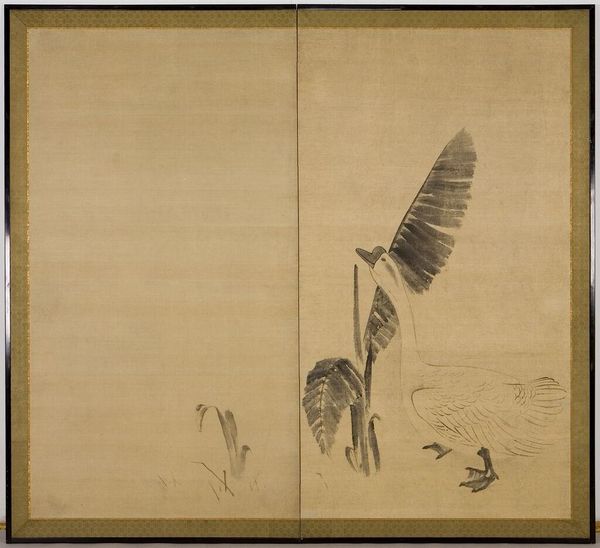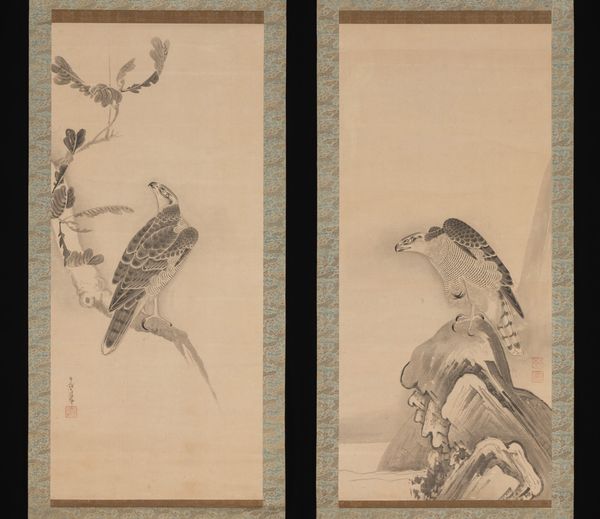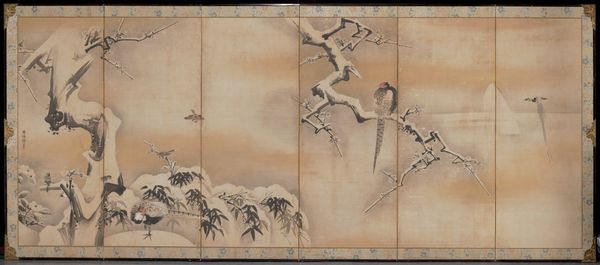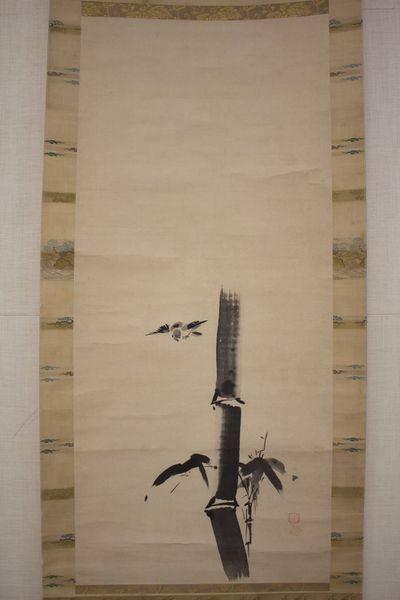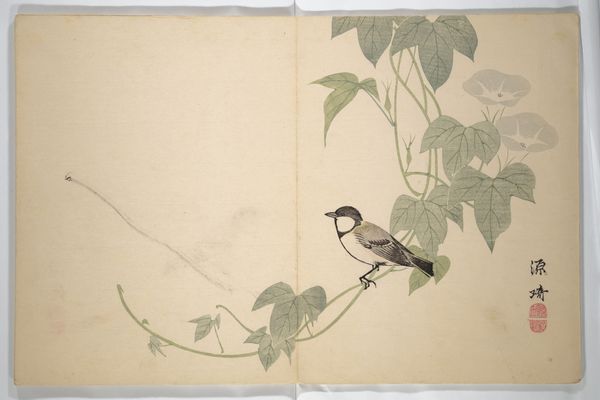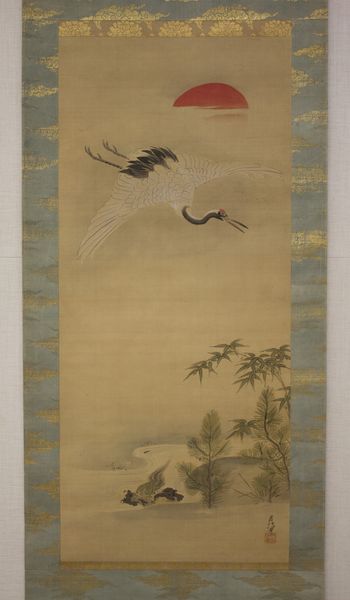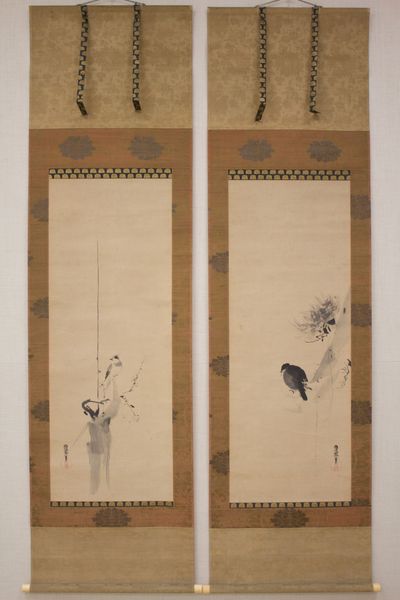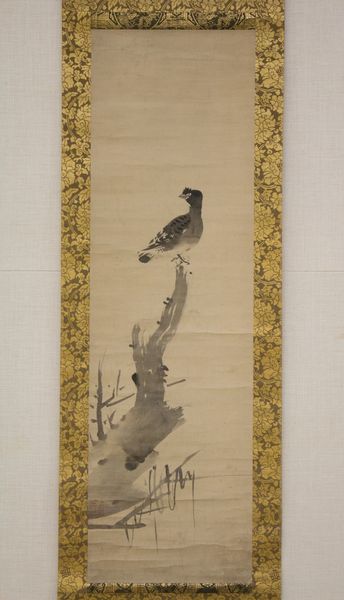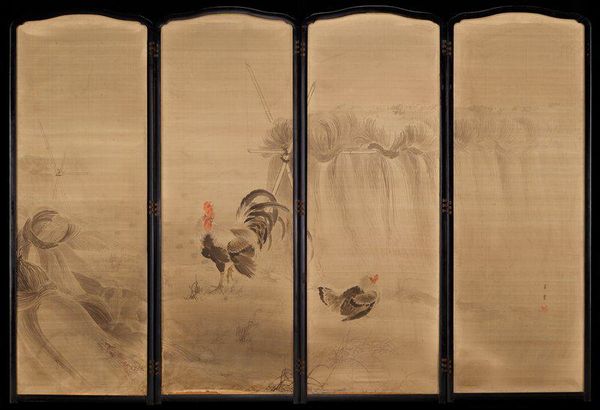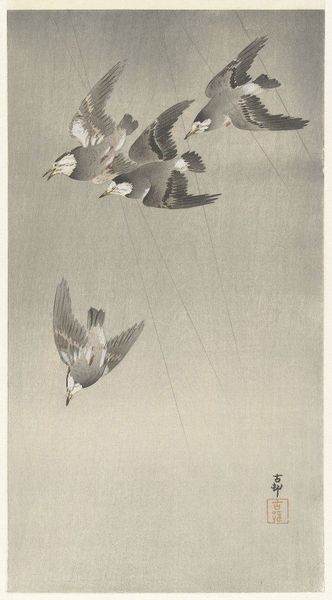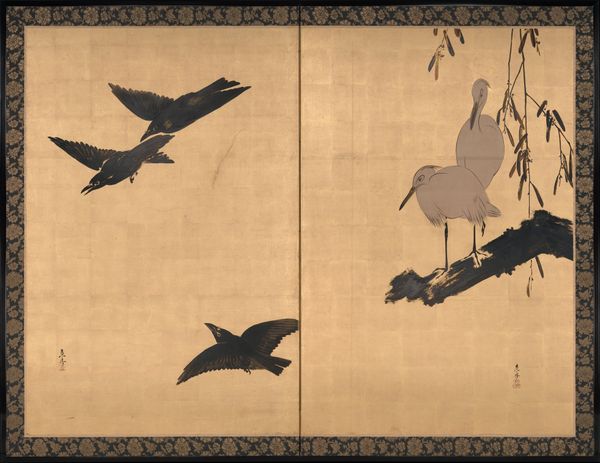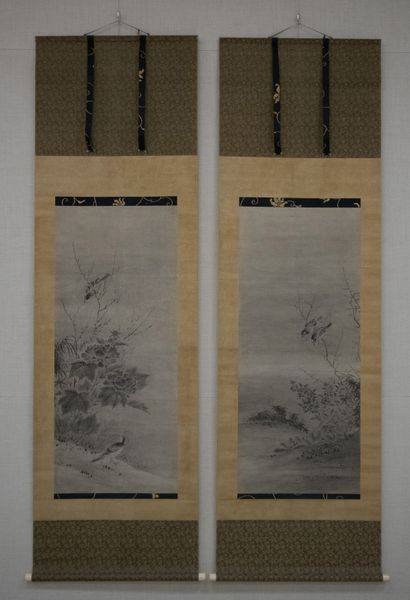
Banana Leaf and Goose : fusuma paintings mounted as a pair of folding screens 18th-19th century
0:00
0:00
Dimensions: each screen painting proper: H. 154.6 Ã W. 171 cm (60 7/8 Ã 67 5/16 in.) overall with mounting: H. 171.5 Ã W. 188 Ã D. 2.2 cm (67 1/2 Ã 74 Ã 7/8 in.)
Copyright: CC0 1.0
Editor: Here we have Banana Leaf and Goose, fusuma paintings on a pair of folding screens, traditionally attributed to Maruyama Ōkyo. I’m struck by how minimal the composition is. What do you see in this piece, considering its cultural context? Curator: It's fascinating how these screens, likely displayed in a domestic setting, subtly negotiated the public image of refinement. Notice how the artist uses empty space, a Zen influence, yet the banana plant itself alludes to imported, even exotic, knowledge and wealth. What does that tension suggest to you? Editor: So, the minimalist aesthetic actually conveys a complex status symbol? Curator: Precisely. It highlights how even seemingly simple images participate in constructing and communicating social hierarchies. Editor: I hadn't considered how an artist could use something like a banana leaf to speak about those hierarchies. Curator: It's a reminder that art isn’t created in a vacuum; its meaning is shaped by its context and reception.
Comments
No comments
Be the first to comment and join the conversation on the ultimate creative platform.
